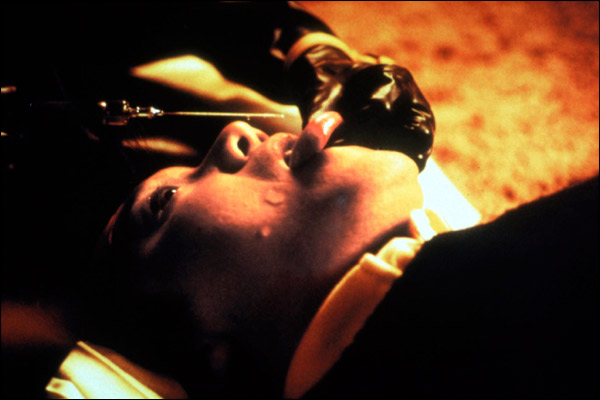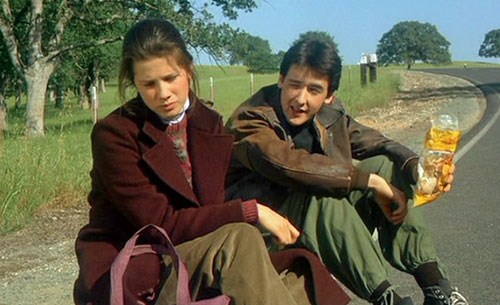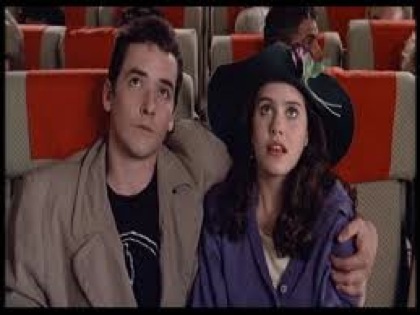I recently watched Audition and Hostel, films famous for their viscerally graphic depictions of torture. I don’t think I flinched once during either of them; I didn’t look away, I wasn’t freaked out, I was unfazed and untrammeled. Needles through the eyes, feet hacked off, genitals severed — go ahead. Doesn’t bother me.
But I did watch one film recently that traumatized me so thoroughly that I almost couldn’t finish it. I covered my eyes; I stopped the playback; I walked away, ejected the disk, and promised myself I wasn’t going to finish it (though I eventually did.)
What was this terrifying, gruesome film you ask?
Would you believe Rob Reinter’s 1985 romantic comedy, The Sure Thing?
At least since I got through adolescence, I’ve always found sit-com style social embarrassment porn a lot more difficult to watch than anything having to do blood or horror. Watching Walter Gibson (John Cusack) squirm while his writing teacher reads out loud his roommate’s Penthouse Forum letter which he has mistakenly submitted for his composition assignment, or watching Alison (Daphne Zuniga) let herself be goaded into leaning out of a moving car topless — Eli Roth and Miike dream about attaining that level of sadistic ruthlessness.
Romantic comedies aren’t usually seen as sadistic of course. But The Sure Thing makes a good case that they are — or at least that this one is. Part of what’s so painful about watching it is the manifest contempt Reiner has for his characters. In “Say Anything”, Cameron Crowe presents his mismatched pair as lovable and natural — the female overachiever is cool and smart and funny and to be honored for her work ethic; the doofy kickboxing oddball is respected for his sweetness and his humor and his gallantry.
Reiner uses a similar smart girl/comic guy dynamic, but for him it’s an excuse for sneering rather than sympathy. Allison’s intelligence and focus are a constant cause for scorn; even her writing teacher tells her she needs to “live life to the fullest” — i.e., drink more beer and fuck more often. Walt, meanwhile, is given a completely standar-issue fascination with the stars to show that beneath the shallow, callous, frat boy alcoholic there lurk depths. Despite heroic efforts by Cusack and Zuniga, neither of their characters is remotely likable nor, for that matter, even provisionally believable. They fill the space labeled, “romantic lead here”, spouting more or less funny one-liners and/or engaging in cringe-worthy set-pieces, as the script moves them.
With the rise of reality television, I guess everybody now is more or less aware that people love to watch each other suffer extremes of humiliation. I don’t think folks usually connect those paroxysms of delightful social contempt with the pleasures of horror (or for that matter action) movie violence and revenge. But to me they don’t seem all that different — except, of course, that, compared to the gore and gouts of blood, the sit-com embarrassment is a lot more visceral.



